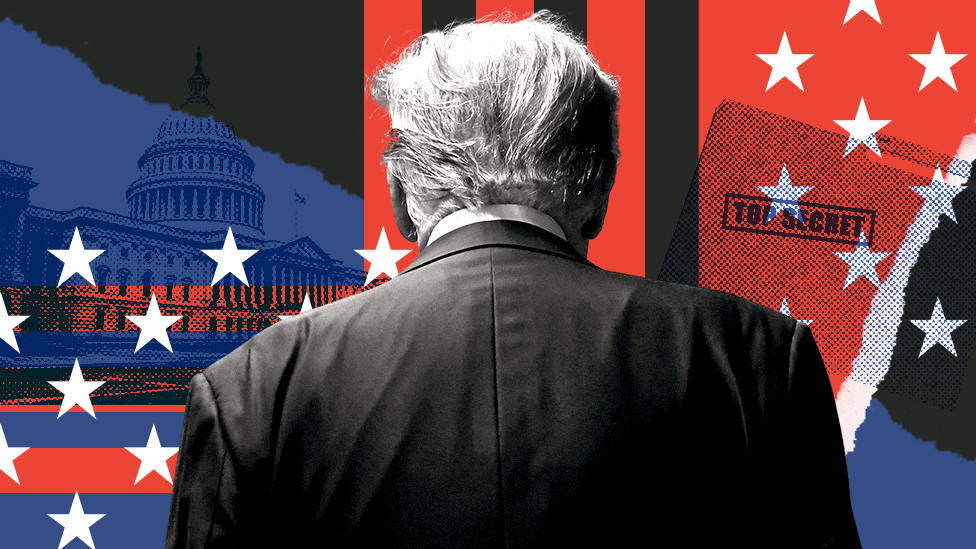Why Trump supporters are wary of joining protests he called for
- Published
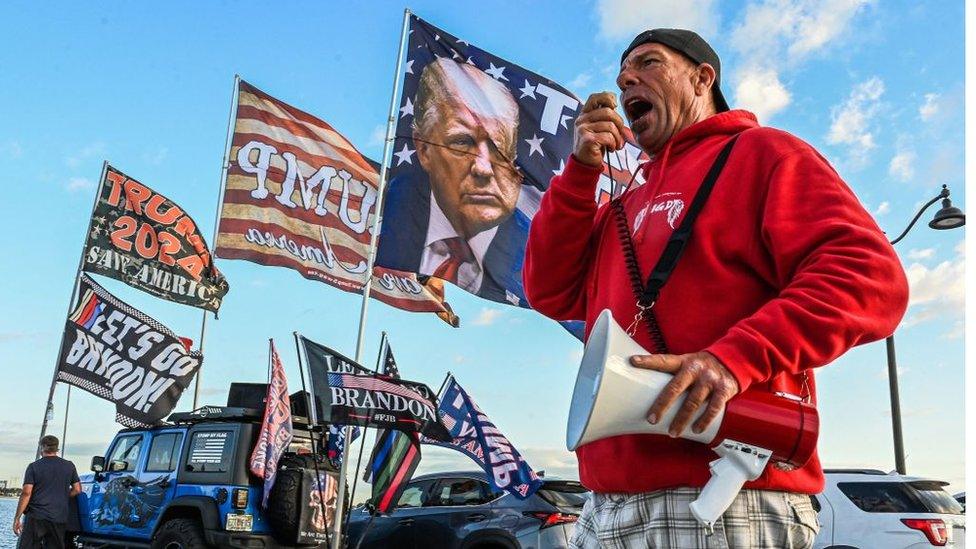
A small group of Trump supporters rally near the former president's Mar-a-Lago Club in Florida on Tuesday
Donald Trump called for protests against his possible imminent criminal indictment, and police in major cities are preparing for unrest.
But the prevailing message from some of his most fervent supporters is: stay home.
It's a contradiction that makes sense after investigating pro-Trump spaces online.
On mainstream social networks, messaging apps and Trump's own Truth Social, rumours are swirling.
There's breathless chatter about double agents and "false flags" - attacks carried out with the intention of blaming opponents for the violence.
Watch: Trump supporters gather outside Mar-a-Largo
Many of the former president's steadfast supporters believe that the Capitol riot on 6 January 2021 was instigated not by Trump fans and far-right groups such as the Proud Boys and Oath Keepers, but instead by federal agents or left-wing "antifa" - anti-fascist activists who hoped to discredit Mr Trump.
They point to the presence, revealed in court documents, of confidential FBI sources in the crowd that day, external.
But that's very different to saying there was a plot by federal authorities to spark violence, external. While there's no evidence of that - and voluminous evidence that the more than 1,000 people arrested in connection with the Capitol riot were Trump supporters - fringe news sites have been filled with wild speculation and suggestions about "deep state" plots.
Some of the coverage has even filtered up to more mainstream outlets such as Fox News.
The rumours, and fear of a repeat of the events of January 2021, have dissuaded many of those who would be out on the streets protesting over Mr Trump's possible arrest.
Ali Alexander, a far-right activist who organised protests leading up to the Capitol riot, announced that he wasn't planning to protest and said that conspiracy theorist Alex Jones of Infowars was also staying home.
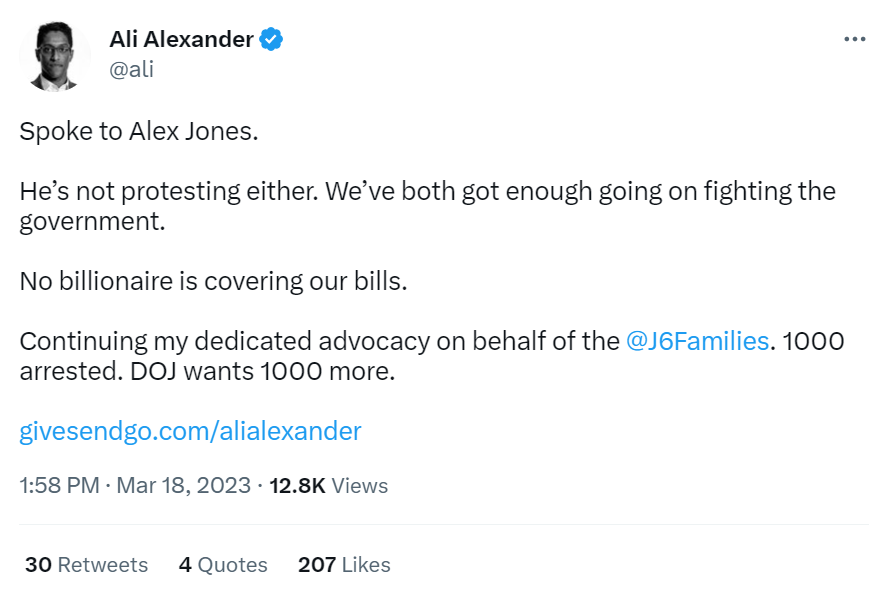
Georgia Representative Marjorie Taylor Greene, a Republican known for her loyalty to Mr Trump, repeated similar concerns:
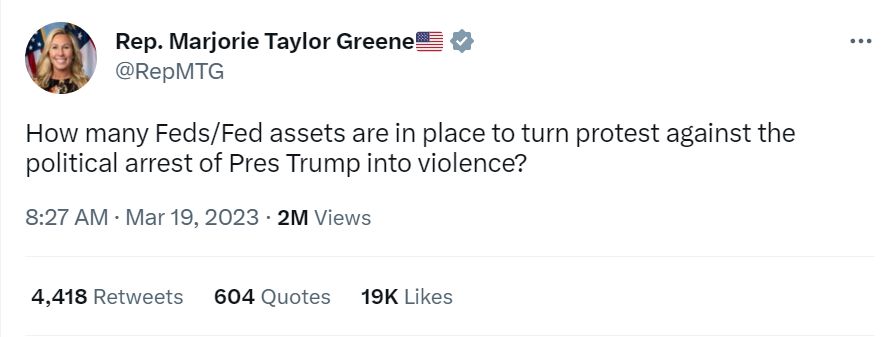
The same sentiments were rife in pro-Trump Facebook groups, on Telegram channels, on sites like 4chan, and on Truth Social.
"Most of the chatter I've seen about protests is that they're all going to be crawling with feds or set ups by the deep state to pull off false flags and make 'peaceful protestors' look bad," says conspiracy theory expert Mike Rothschild.
Mr Rothschild, author of The Storm is Upon Us, a book on the QAnon conspiracy theory, noted that a protest on Monday held by the New York Young Republican Club drew only a few dozen supporters.
"I think some of this is genuine paranoia over being arrested, and some of it is that there's just fewer people with the fanatical devotion to Trump that drove January 6th," he says.
In contrast with his messages prior to the Capitol riot, Mr Trump has not been specific about a focal point or timing of any potential protest.
But there are indications that talk of violence against Trump's opponents is rising. Advance Democracy, a non-partisan research group, found a spike in mentions of violence trebled on Truth Social after Mr Trump declared on Saturday that he would be arrested and urged his supporters to "PROTEST, TAKE OUR NATION BACK!"
Law enforcement seem to be taking such threats and the possibility of large protests seriously.
New York police are bolstering security around the courthouse where Mr Trump would be arrested. Police in Los Angeles are preparing for a pro-Trump protest on Tuesday outside a federal building, the LA Times newspaper reports.
In Washington, police say they have no specific information about pro-Trump protests but civil disturbance officers are on standby.
On Saturday, Mr Trump is scheduled to hold a rally in Waco. The central Texas city was the site of a raid on a Christian cult in 1993 which resulted in the deaths of 82 cult members and four federal agents, an incident that has long been a rallying cry for anti-government and anti-law enforcement groups.
Related topics
- Published4 April 2023
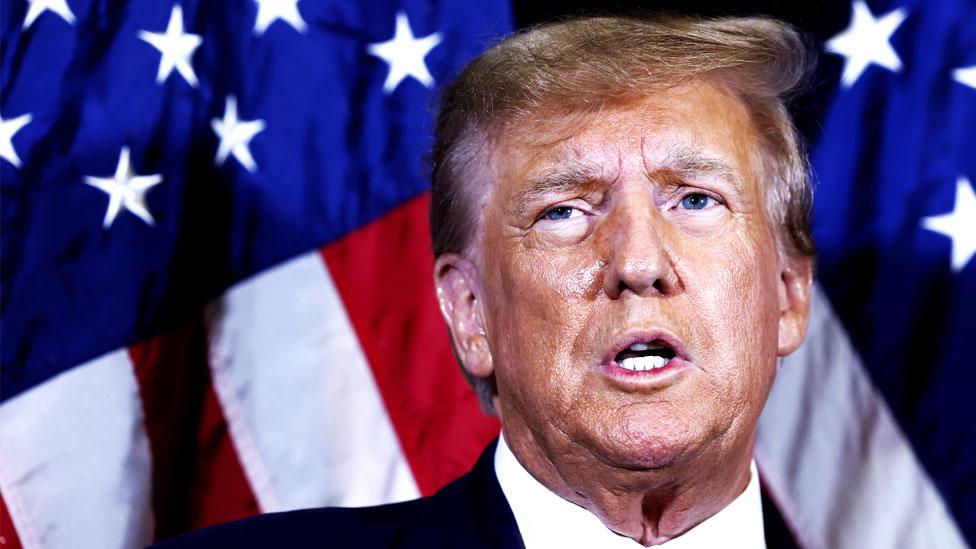
- Published21 March 2023
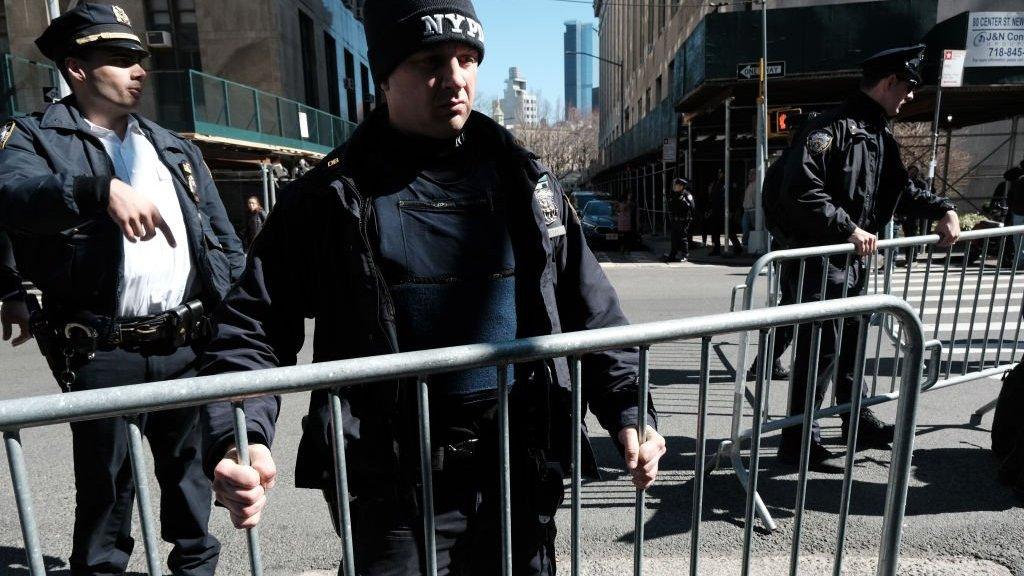
- Published28 August 2024
